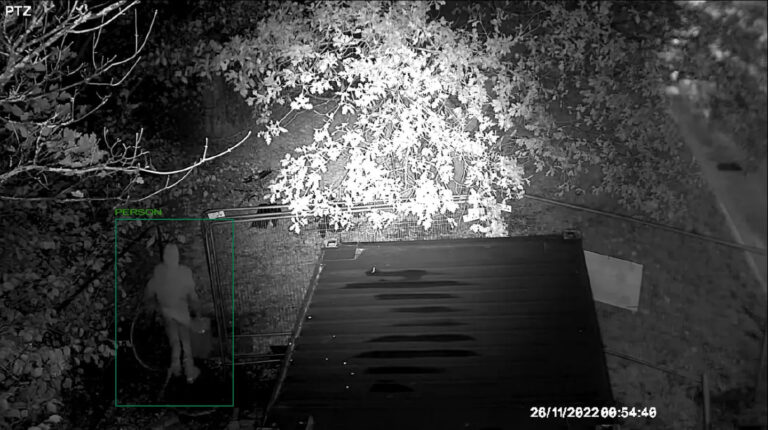Navigating Modern Physical Security Threats in the United Kingdom – A Comprehensive Examination
In the United Kingdom, as in many parts of the world, a myriad of physical security threats persists beyond the realm of cybercrime. While cybersecurity threats often dominate headlines, physical security remains a critical concern for individuals, businesses, and governments alike. From organized crime groups to retail theft and societal challenges like knife crime and protest movements, natural disasters or acts of violence, a holistic approach to security is imperative to mitigate these risks and ensure the safety and well-being of individuals and communities.
Critical Infrastructure Vulnerabilities
Critical infrastructure, including power plants, transportation systems, and telecommunications networks, is a prime target for physical security threats due to its importance to society and the economy. Disruption to critical infrastructure can have far-reaching consequences, impacting public safety, economic stability, and national security.
Physical security threat measures such as access control, surveillance systems, and perimeter barriers are essential to protect critical infrastructure from sabotage, vandalism, and terrorist attacks. Regular risk assessments and security audits can help identify vulnerabilities and strengthen security protocols to mitigate potential threats.
Fuel Theft and Its Implications
Fuel theft is a significant issue affecting the transportation and energy sectors in the UK. With rising fuel prices and increased demand for energy resources, organized crime groups have targeted fuel depots, gas stations, and private vehicles for theft, leading to substantial economic losses and security risks.
Enhancing physical security threat measures at fuel storage facilities, implementing real-time monitoring systems, and promoting community awareness campaigns can help deter fuel theft and disrupt criminal activities. Cooperation between industry stakeholders, law enforcement agencies, and regulatory bodies is essential to address this evolving threat and safeguard critical energy infrastructure.
Copper Theft and Infrastructure Vulnerabilities
Copper theft poses a unique challenge to infrastructure operators in the UK, including telecommunications, transportation, and utility companies. The high value of copper metal and its essential role in infrastructure construction make copper theft a lucrative criminal enterprise, leading to service disruptions, safety hazards, and financial losses for affected organizations.
Protecting copper infrastructure assets through physical security measures, such as fencing, alarms, and surveillance cameras, is vital to deter theft attempts and identify perpetrators. Collaboration with scrap metal dealers, industry associations, and law enforcement agencies can aid in tracking stolen copper materials and prosecuting individuals involved in illegal activities.
Generator Theft and Business Continuity Risks
Generator theft presents a critical threat to businesses and organizations reliant on backup power systems for uninterrupted operations during emergencies or power outages. Criminal groups target generators for their resale value or to disrupt essential services, compromising business continuity and public safety.
Securing generators with robust locks, enclosures, and GPS tracking devices can mitigate the risk of theft and aid in recovery efforts in the event of a security breach. Conducting regular security assessments, maintaining inventory records, and implementing access controls are essential practices for businesses to protect their assets and maintain operational resilience in the face of theft threats.
Retail Theft and Shoplifting Trends
Retail theft, including shoplifting, remains a pervasive concern for businesses across the UK. Beyond financial losses, which can be substantial for retailers of all sizes, the impact of theft extends to increased prices for consumers and compromised safety for staff and customers.
Organized retail crime groups often target high-value goods, exploiting vulnerabilities in store security systems to perpetrate large-scale theft operations. Implementing surveillance technologies, training staff in theft prevention tactics, and collaborating with law enforcement agencies are crucial steps for retailers to combat this persistent threat and protect their assets.
Workplace Violence Incidents
Violence in the workplace is a growing concern for organizations of all sizes, with armed assailant incidents becoming more frequent in recent years. These tragic events can occur in any setting, from office buildings to schools, posing a serious threat to employee safety and security.
Preventing workplace violence requires a multi-faceted approach that includes employee training, threat assessment, and access control measures. Developing a comprehensive emergency response plan that addresses active shooter incidents is essential to minimizing the impact of these events and protecting individuals at risk.
Insider Threats and Workplace Safety Risks
While much attention is paid to external threats, insider threats pose a significant risk to organizations of all types. Employees, contractors, and vendors with access to sensitive information and facilities can exploit their privileges to cause harm or commit acts of sabotage.
Implementing robust security protocols, including background checks, access controls, and employee training programs, can help mitigate the risk of insider threats and ensure a safe work environment. Encouraging a culture of reporting suspicious behaviour and providing channels for confidential reporting can also help identify potential threats before they escalate.
Knife Crime and Community Safety Concerns
Knife crime has emerged as a pressing public safety issue in the UK, fuelling concerns about violent crime rates and community well-being. Young people are often disproportionately affected by knife-related incidents, which can have lasting physical, emotional, and societal consequences.
Preventing knife crime requires a multi-faceted approach that addresses root causes, such as poverty, mental health challenges, and social inequalities. Investing in youth engagement programs, educational initiatives, and law enforcement partnerships can help reduce the prevalence of knife-related violence and create safer environments for individuals and families across the UK.
Public Event Security and Crowd Management
Public events, including concerts, festivals, and sporting events, present unique security challenges due to the large crowds and diverse range of attendees. Ensuring the safety and security of participants requires careful planning, coordination, and communication among event organizers, security personnel, and law enforcement agencies.
Crowd management strategies, perimeter security, and bag checks are common measures used to enhance public event security and prevent potential threats. Establishing designated evacuation routes, emergency communication protocols, and medical response capabilities can help respond effectively to emergencies and ensure the wellbeing of attendees.
Protest Movements and Security Challenges
Protest movements and demonstrations play a vital role in democratic societies, allowing individuals to voice their opinions and advocate for social change. However, peaceful protests can escalate into disruptive or violent events, posing security challenges for law enforcement agencies, businesses, and the public.
Balancing the right to protest with public safety considerations requires proactive planning, communication, and risk assessment processes. Establishing dialogue with protest organizers, implementing crowd management strategies, and monitoring social media channels can help anticipate potential security threats and maintain order during public demonstrations.
Organized Crime Groups and Illicit Activities
Organized crime groups operate across various sectors in the UK, engaging in illicit activities such as drug trafficking, human smuggling, and money laundering. These criminal networks pose a significant threat to public safety, economic stability, and national security, necessitating coordinated efforts to disrupt their operations and dismantle their influence.
Collaboration between law enforcement agencies, intelligence services, and international partners is essential to combat organized crime groups and address the root causes of criminality. Utilizing intelligence-led policing tactics, deploying specialized investigative units, and enhancing regulatory oversight can help identify, disrupt, and prosecute individuals involved in organized crime activities, safeguarding communities and fostering a culture of accountability and transparency.
Environmental Hazards and Natural Disasters
One of the most pressing physical security threats facing communities around the world is the risk of environmental hazards and natural disasters. Climate change has contributed to an increase in extreme weather events, such as hurricanes, wildfires, and floods, that can cause widespread devastation and displacement.
In addition to these acute events, slow-onset disasters like droughts and sea level rise pose long-term challenges for infrastructure and community resilience. Effective emergency preparedness and response plans are essential to mitigate the impact of these threats and protect lives and property.
Conclusion
In navigating the complex landscape of modern physical security threats in the United Kingdom, proactive measures, strategic partnerships, and community engagement are fundamental to safeguarding individuals, businesses, and critical infrastructure. By addressing the diverse challenges posed by retail theft, fuel theft, copper theft, generator theft, knife crime, protest movements, and organized crime groups, stakeholders can foster resilience, foster resilience, and ensure the safety and prosperity of communities across the UK.








 by
by 

